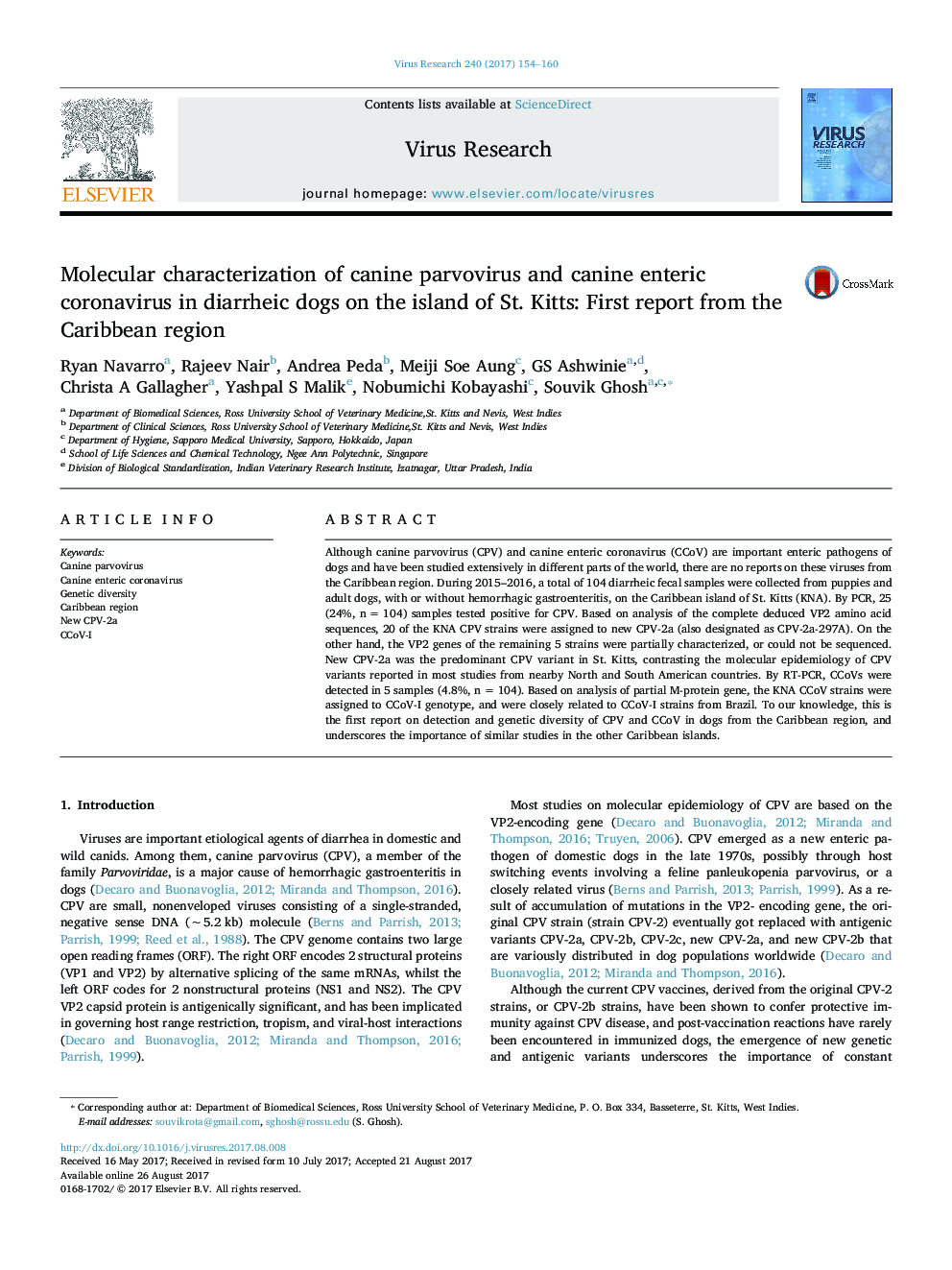| Article ID | Journal | Published Year | Pages | File Type |
|---|---|---|---|---|
| 5675303 | Virus Research | 2017 | 7 Pages |
â¢Detection of CPV (24%) and CCoV (4.8%) in dogs on Caribbean island of St. Kitts.â¢New CPV-2a (CPV-2a-297A) was the predominant CPV variant in St. Kitts.â¢The CCoV strains from St. Kitts were assigned to CCoV-I genotype.â¢First report on genetic diversity of CPV and CCoV from the Caribbean region.
Although canine parvovirus (CPV) and canine enteric coronavirus (CCoV) are important enteric pathogens of dogs and have been studied extensively in different parts of the world, there are no reports on these viruses from the Caribbean region. During 2015-2016, a total of 104 diarrheic fecal samples were collected from puppies and adult dogs, with or without hemorrhagic gastroenteritis, on the Caribbean island of St. Kitts (KNA). By PCR, 25 (24%, n = 104) samples tested positive for CPV. Based on analysis of the complete deduced VP2 amino acid sequences, 20 of the KNA CPV strains were assigned to new CPV-2a (also designated as CPV-2a-297A). On the other hand, the VP2 genes of the remaining 5 strains were partially characterized, or could not be sequenced. New CPV-2a was the predominant CPV variant in St. Kitts, contrasting the molecular epidemiology of CPV variants reported in most studies from nearby North and South American countries. By RT-PCR, CCoVs were detected in 5 samples (4.8%, n = 104). Based on analysis of partial M-protein gene, the KNA CCoV strains were assigned to CCoV-I genotype, and were closely related to CCoV-I strains from Brazil. To our knowledge, this is the first report on detection and genetic diversity of CPV and CCoV in dogs from the Caribbean region, and underscores the importance of similar studies in the other Caribbean islands.
